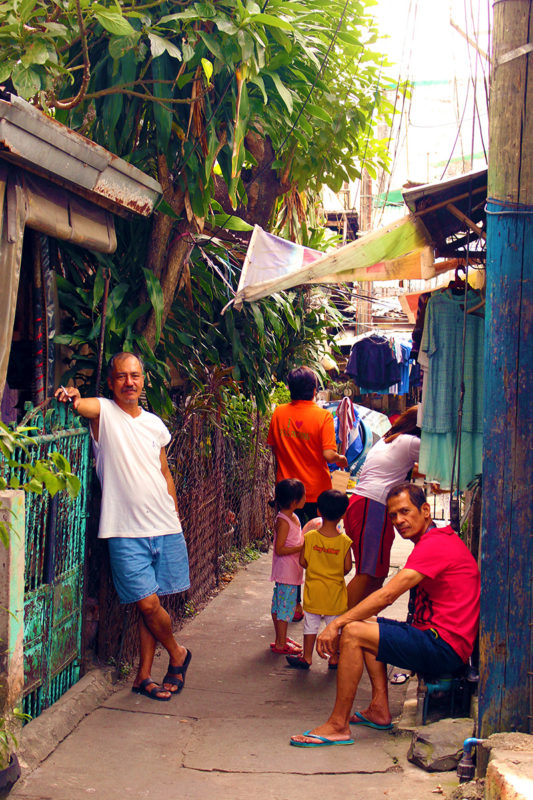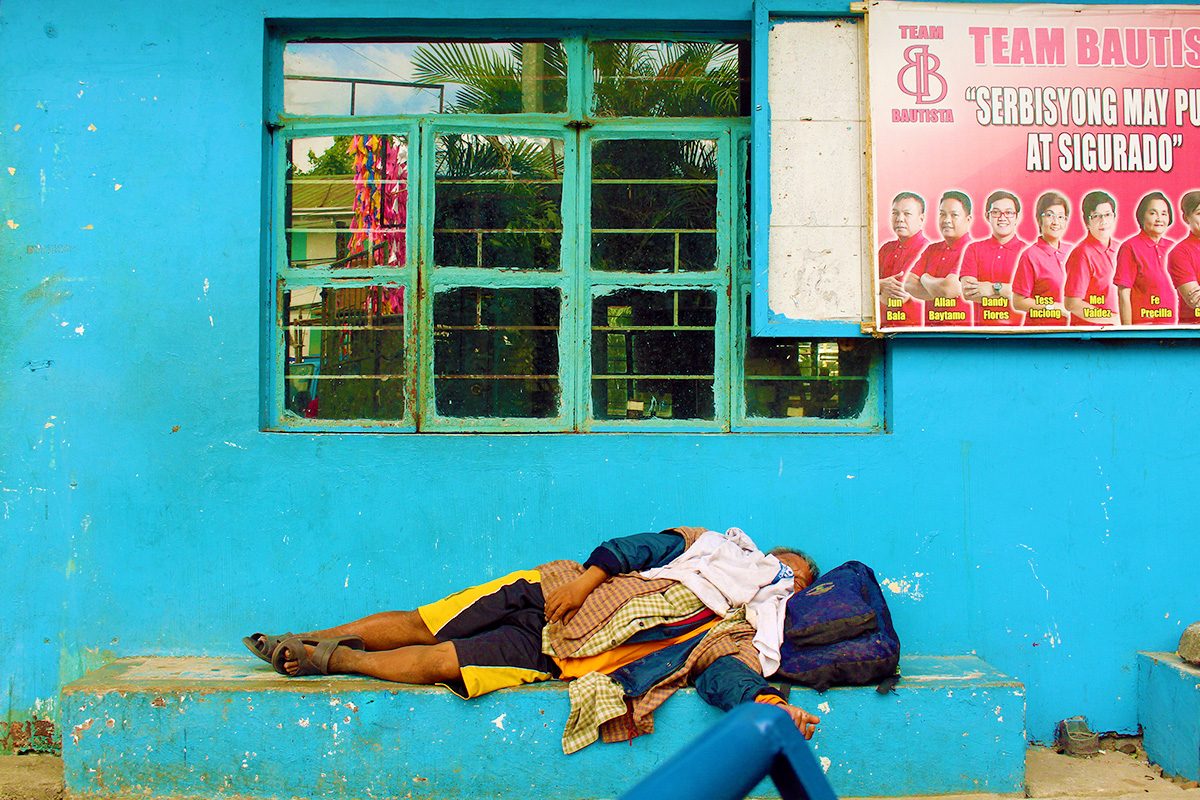A crowd of nanays and their toddlers wait in the lobby of a barangay hall to avail of a free medical check-up. Upstairs, a staff member informs community residents about disaster risk management.
This is the typical scene at Barangay San Bartolome in Novaliches, a community that has garnered recognition for good governance. Last year, it was bestowed the Barangay Seal of Good Housekeeping.
One of San Bartolome’s best practices is its Lupong Tagapamapayapa or mediation committee. Barangay Secretary Vega Chaves explains that it has helped keep court trials at bay by settling personal cases amicably at the barangay level. The program was named 2nd runner-up for the Outstanding Lupong Tagapamapayapa award.
Responding to the needs on the ground is the foundation of good governance. Local government units are thus crucial to further the national agenda. But the concept of a capable local government is not exclusive to Metro Manila.
In Iloilo province, Ronilo Caspe beams with pride as he serves another term as municipal mayor of Cabatuan. Inside his office, the shelves display the trophies and plaques recognizing the merits of the modest town.
Under the leadership of Caspe, Cabatuan became the two-time recipient of the Gawad Listahanan Award, first for its staunch anti-poverty campaign, and second for its free maintenance drugs program.
From minority to majority
As an anti-poverty initiative, Caspe notes the municipality’s Cabatuan Laban sa Kahirapan (CABALAKA). This multi-sectoral program brings the services of the local government unit (LGU) directly to the people.
Under the CABALAKA is the Local Poverty Reduction Action Team (LPRAT) that identifies needed anti-poverty projects. Civil society organization (CSO) representatives must approve of these before sending them to the national government.
This procedure was mandated under the Bottom-up Planning and Budgeting (BUB), a reform launched in 2012 by the Aquino administration that institutionalized the participation of citizen’s groups in the budget process.
Sixto Donato “Dodo” Macasaet, executive director of the Caucus of Development NGO Networks (CODE-NGO), explains that the LPRAT is evenly composed of both LGU and CSO representatives. Prior to this, they had the local development councils and CSOs made up only 25% of the total members.
“In the BUB, the local government is, in a sense, forced to listen to and work out an agreement with CSOs because without their support, they don’t have the support of the majority,” he says.
Citizens at the core

The Aquino administration was keen on achieving a more participatory governance, and BUB was only one of its many initiatives.
The Department of Internal and Local Government (DILG) launched the Seal of Good Local Governance in 2014 to award LGUs with exemplary performance in good financial housekeeping, disaster preparedness, and social protection, among others. The awardees are also incentivized with the Performance Challenge Fund to help them sustain economic development initiatives in their respective localities.
In 2015, the Aquino administration, together with the private sector and civil society, crafted the 3rd Open Government Partnership National Action Plan. The three-year action plan aims to promote good governance through different reforms, namely the passage of the freedom of information bill, fiscal transparency, public-private consultation, and civic engagement.
During the start of his term, Caspe organized multiple summits, where various sectoral representatives are invited to voice their concerns and propose solutions to the town’s problems. He draws examples from previous efforts: summits for child and youth development welfare, agriculture, and health among others.
Apart from engaging in public dialogue, Caspe also cites financial management and transparency as one of the best practices of good governance.
“Every time we post the collections and expenditures of the LGU, we also conduct regular audit. Then I submit the results of the audited funds and present them to the barangay. We also follow the proper procedures for both open and transparent bidding,” he added.
The question of engagement
However, the implementation of new reforms could possibly limit citizen involvement. The BUB, despite it being a platform for grassroots empowerment, has been rebranded as the Assistance to Disadvantaged Municipalities (ADM) program.
The new DILG secretary, Ismael Sueno, sees ADM as a major improvement from its predecessor. While the BUB mainly covers all LGUs regardless of income class, the ADM prioritizes the allocation of resources to the poorest LGUs.
Sueno describes the eligible projects as basic infrastructure most needed in those areas: access roads, potable water, evacuation centers, sanitation facilities and small water impounding.
Despite the differences in objectives, Sueno insists that the thrust of ADM remains “pro-poor and pro-people.”
“In ADM, we are more concerned in helping the towns address the essential needs of their constituents,” he said in a statement.
Macasaet argues against the new system since it provides less opportunity for checks and balances. ADM only involves one chief executive and his or her chosen CSO to identify the projects. The exclusive “menu” especially limits choice. He says that although this may address a gap, it may not be the priority of the community.
“What we’re after is actually the essence of BUB, which is…participatory [governance],” he shares. “Although there are problems, it’s more effective in responding to the local situation than a top-down approach.”
Civil society’s participation has indeed proven to provide better services, but the avenues for engagement remain lacking. Although Chaves praises San Bartolome’s barangay-based institutions, she admits that not all of them function to accommodate their respective sectors.
She attributes this to the requirement that members are only required to attend two regular sessions in a month to receive their allowance. Because of their complacency, Chaves laments that they have no achievements to present during the barangay assemblies held twice a year.
“Hindi lahat ng barangay kumikilos, ‘yun ‘yung reality. ‘Yun ‘yung challenge (Not all of the barangays act, that’s the reality. That is the challenge),” Chaves says.
Power of the people
Being at the forefront of the grassroots movement, CSOs have emerged as effective catalysts toward achieving good governance.
CSOs have been instrumental to the country’s growth, serving as prominent stakeholders in state projects. For instance, CODE-NGO conducts training seminars in barangays where locals are taught how to analyze budget documents and engage constructively in government. Aside from mobilizing citizens, the organization also performs its watchdog role of monitoring government’s performance.
“[Each person] has to be part of the whole development process. Hindi siya beneficiary lang, hindi siya tagatanggap (They’re not just a beneficiary, or a receiver),” Macasaet says.
He recalls a success story in South Cotabato where the construction of a bridge shortened the travel time of locals who visit the town center daily, made possible through BUB and the active involvement of CSOs.
“Development is not just income, it’s also how empowered [people are],” Macasaet says.
On the other hand, Chaves says that working in the barangay requires hard work for it to be “vibrant” and “lively,” which indicates that everyone is doing their job.
“Kung matino at mahusay ang pamamahala ng barangay, matino rin ang Pilipinas. (If the management of the barangay is sensible and capable, then so would the Philippines’),” she claims. “Kung lahat ng barangay kumilos… walang problema ang national government. Nandito ‘yung tao e, grassroots ito.(If every barangay would act, there would be no problem in the national government. The people are here, this is the grassroots).”




